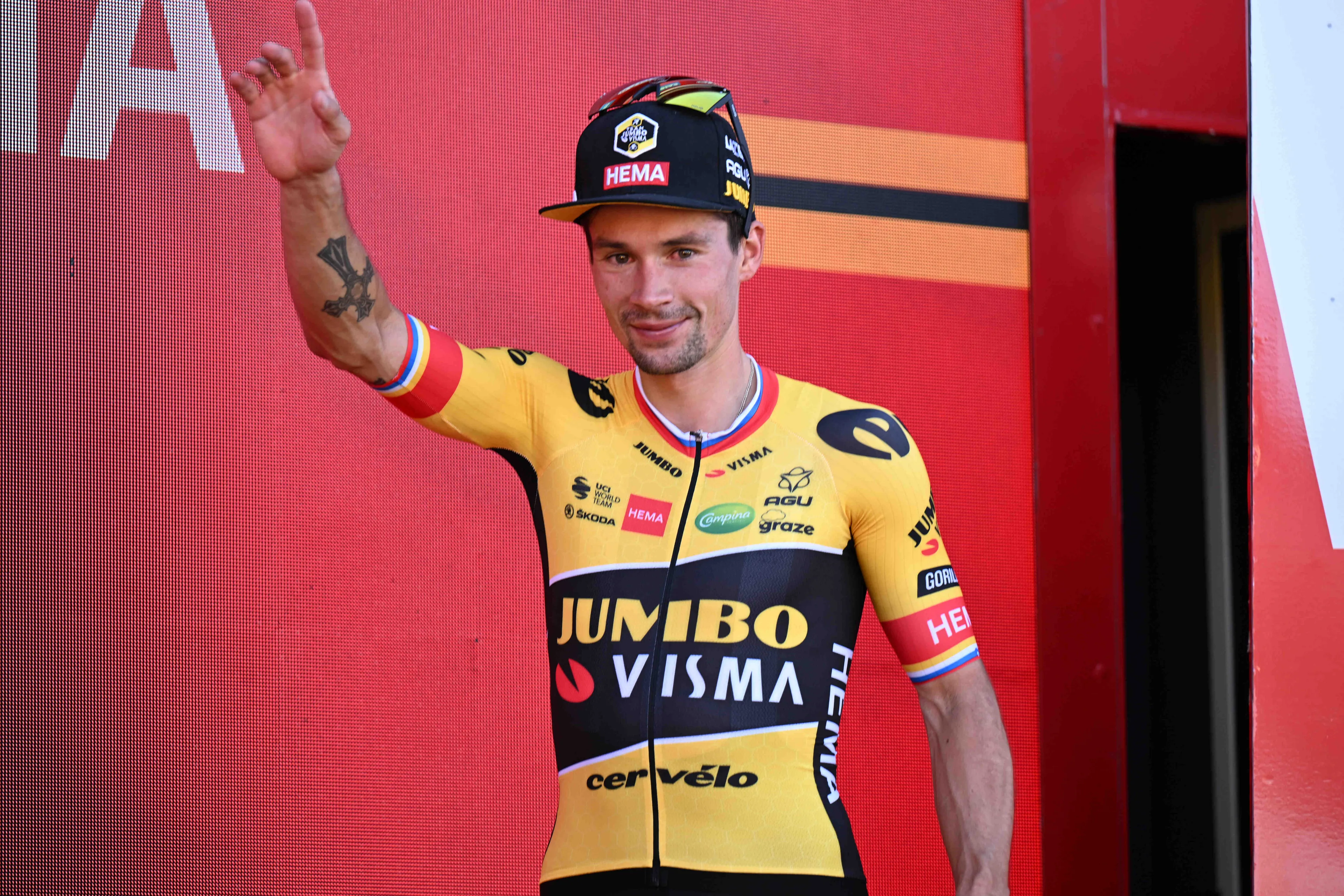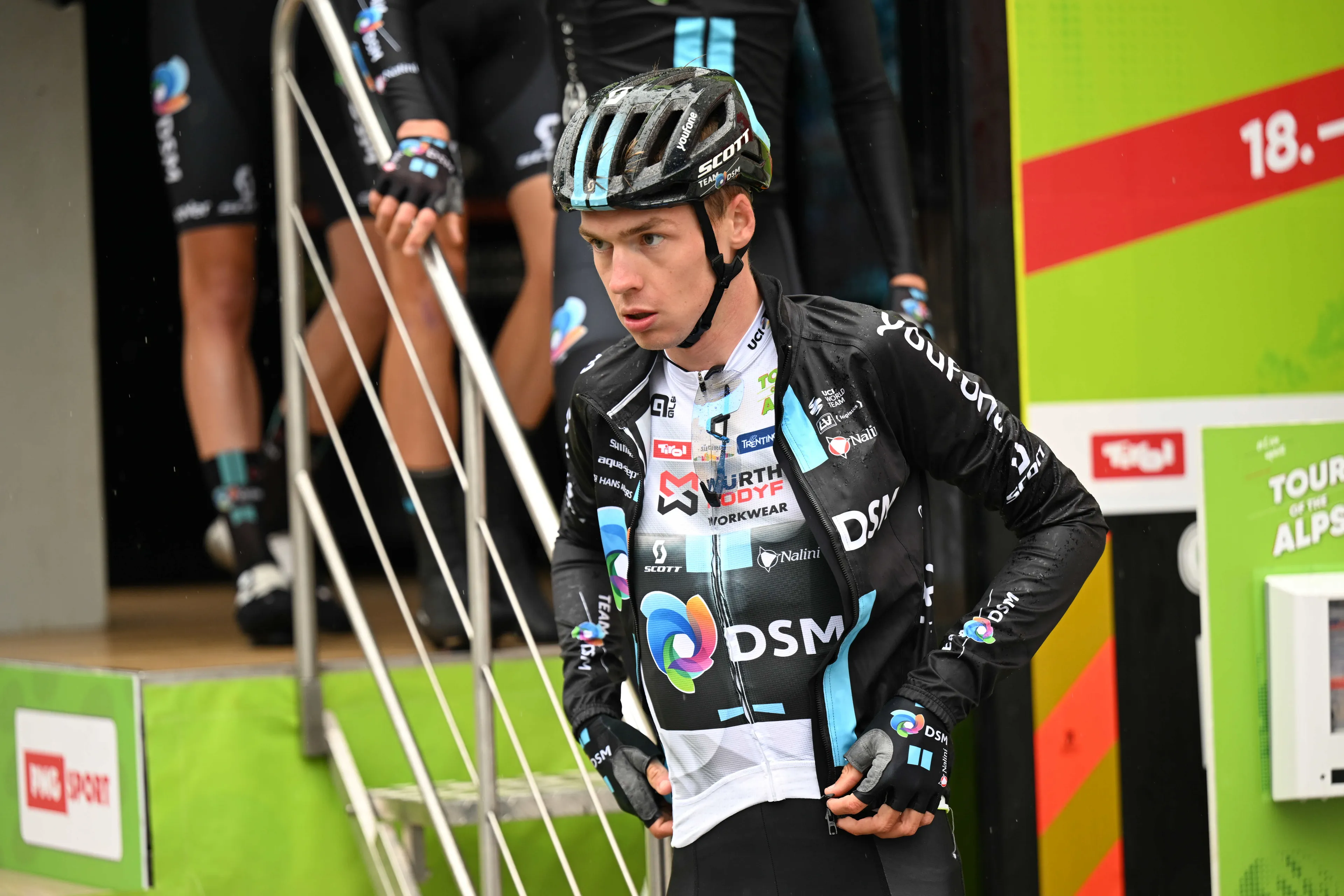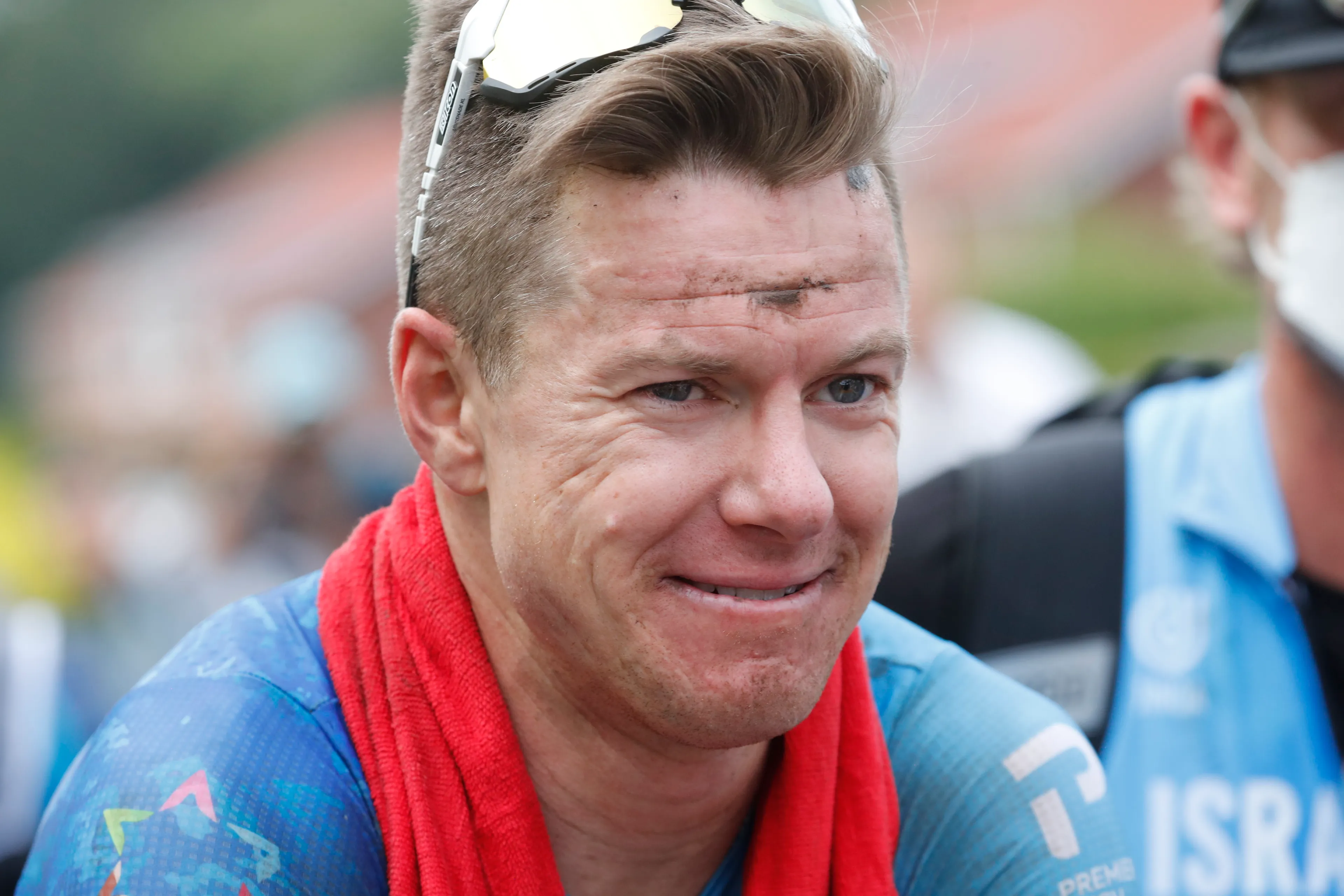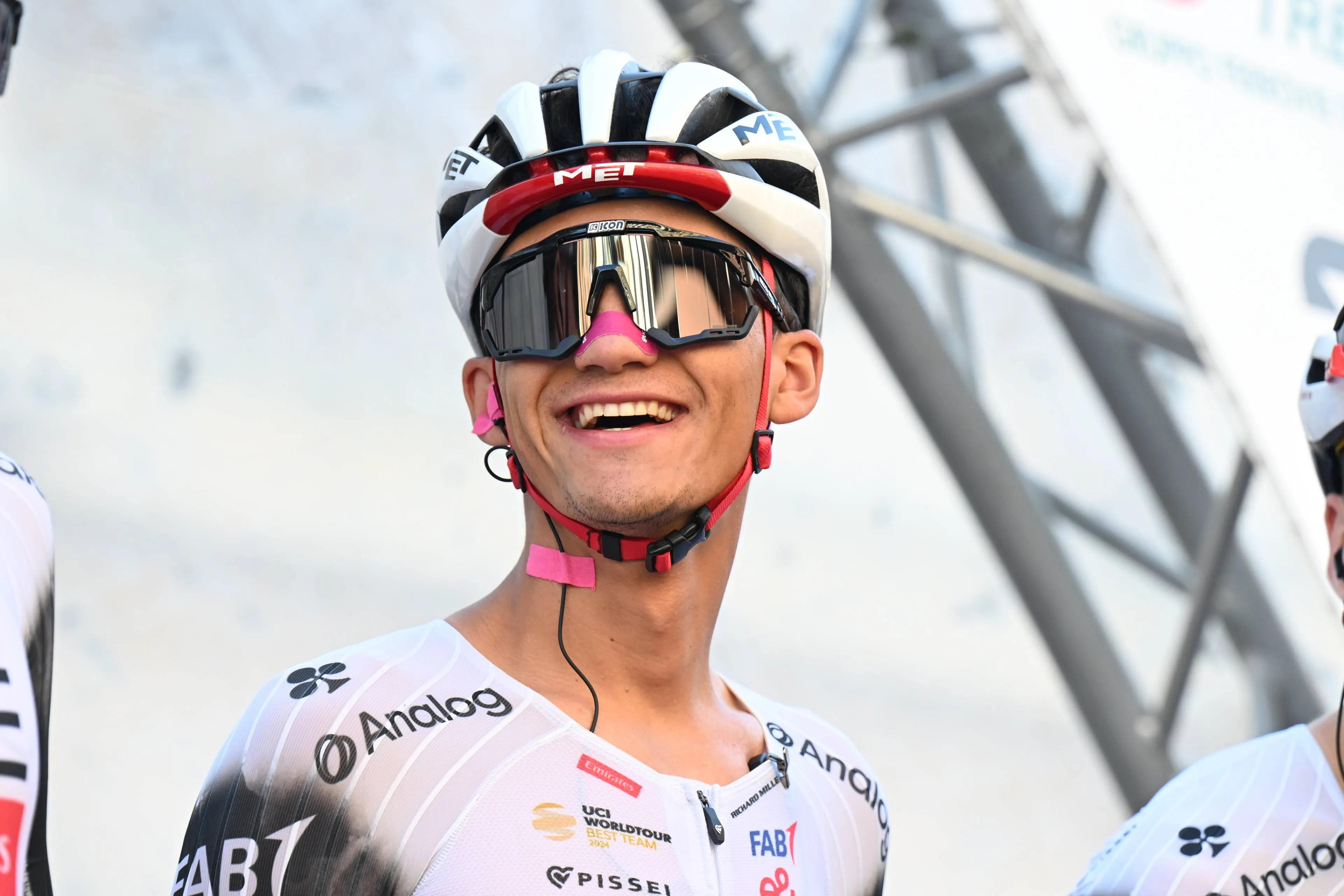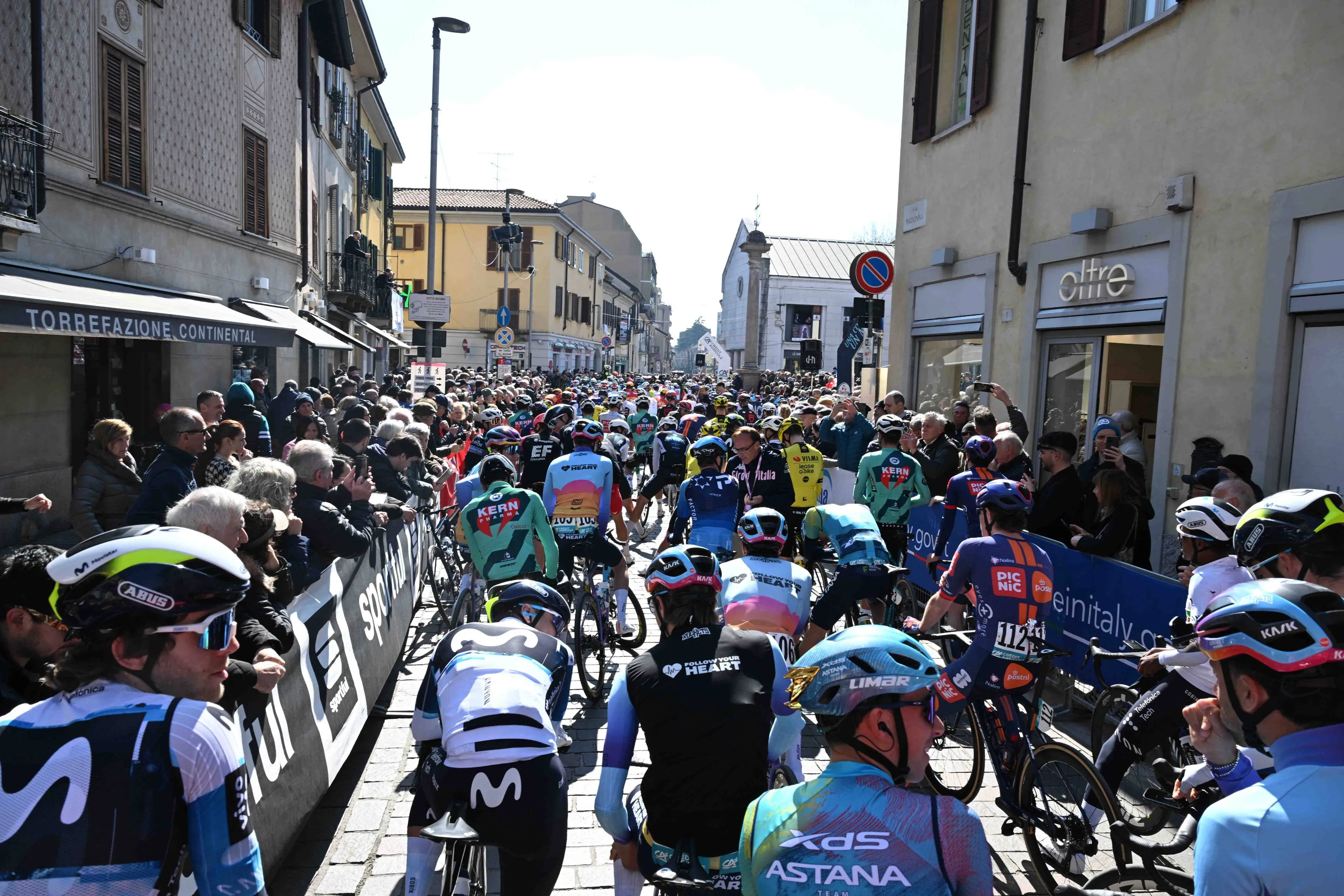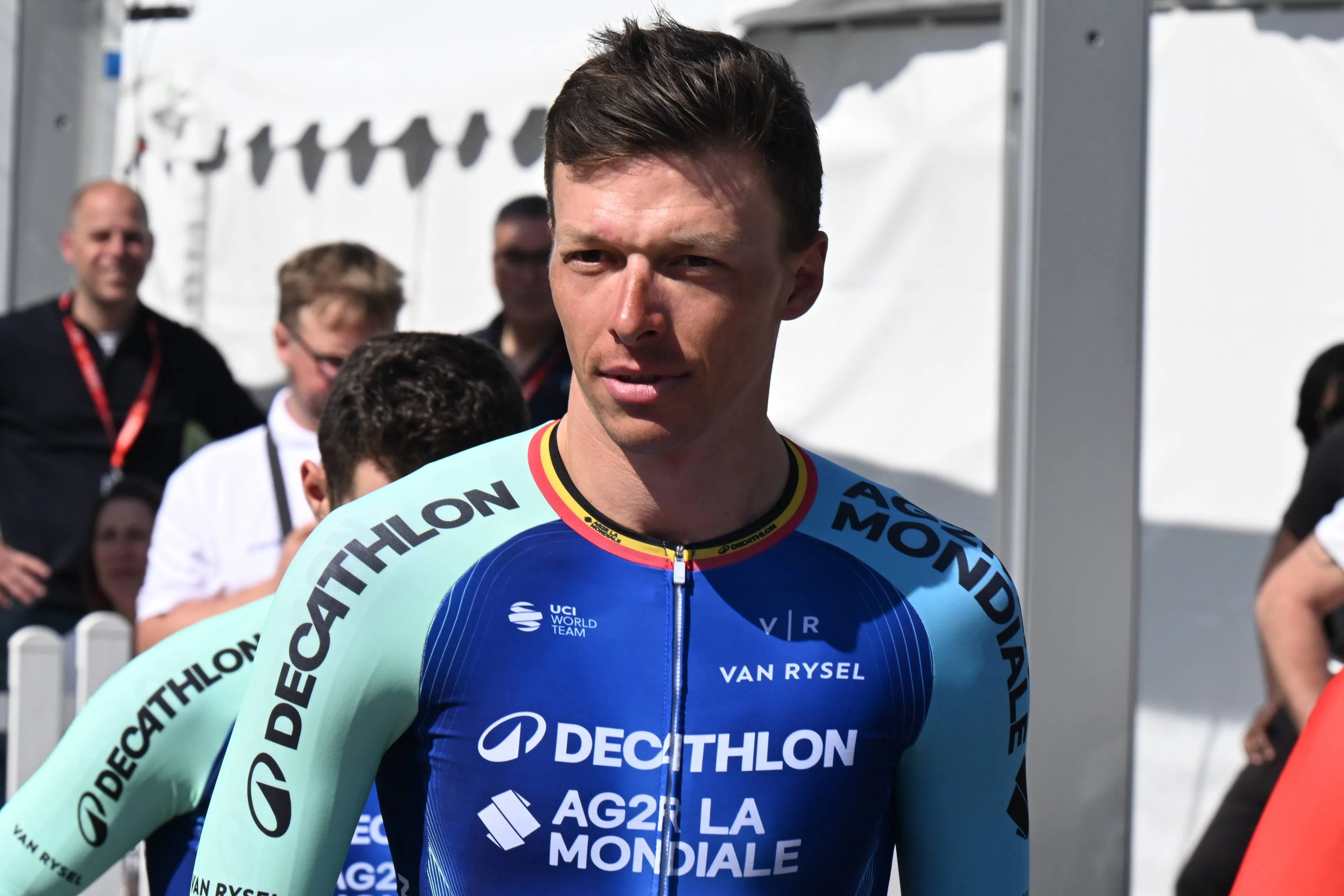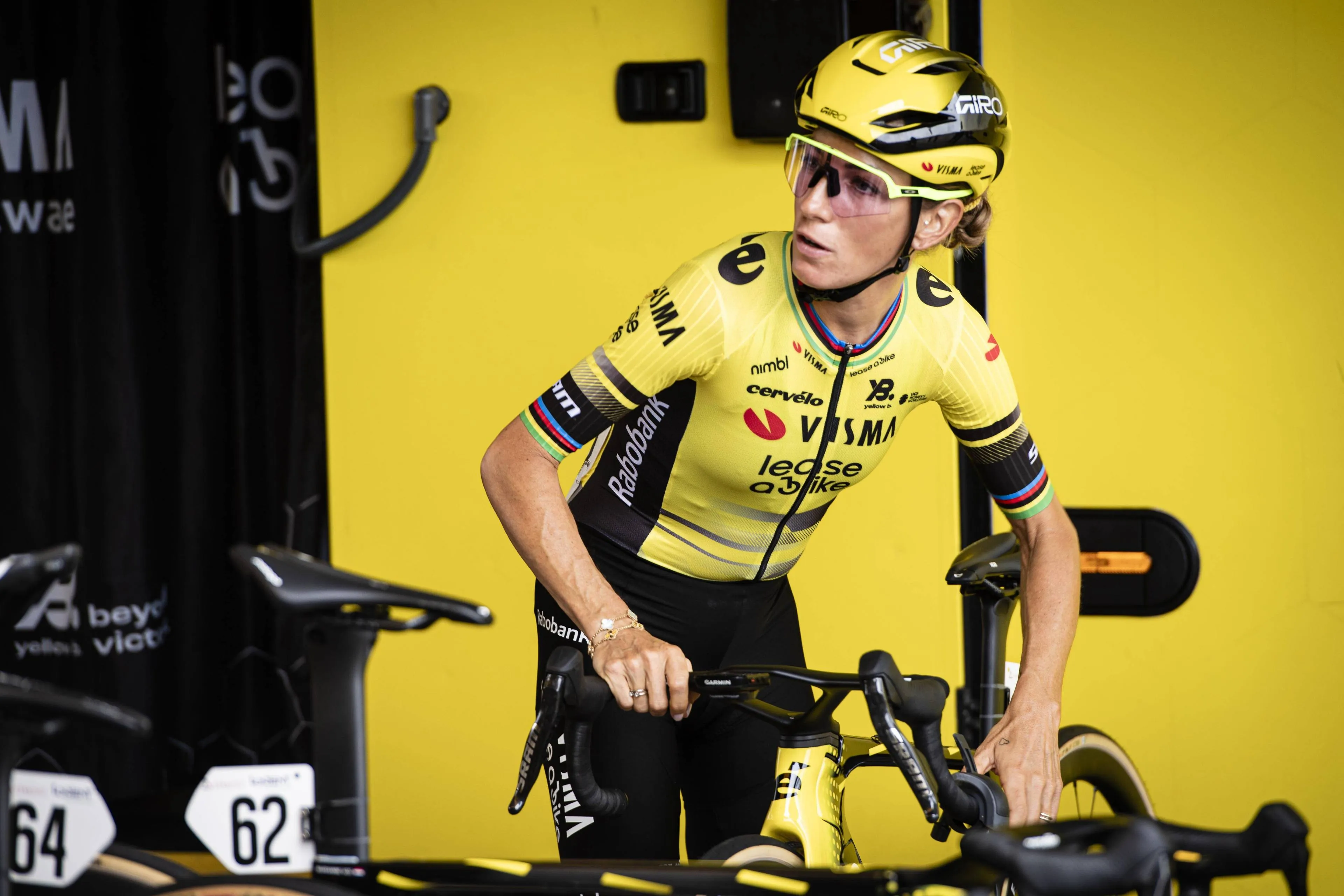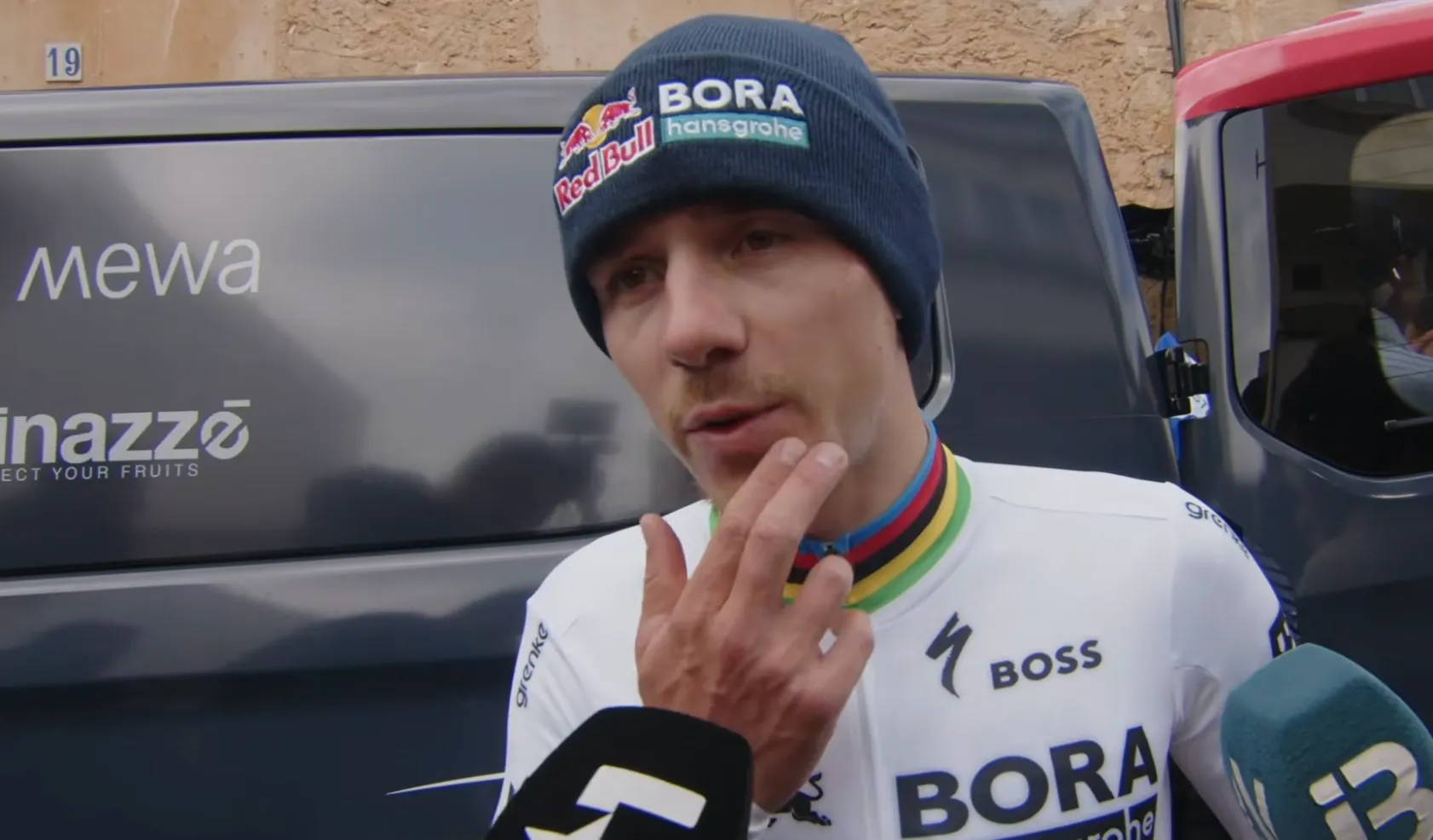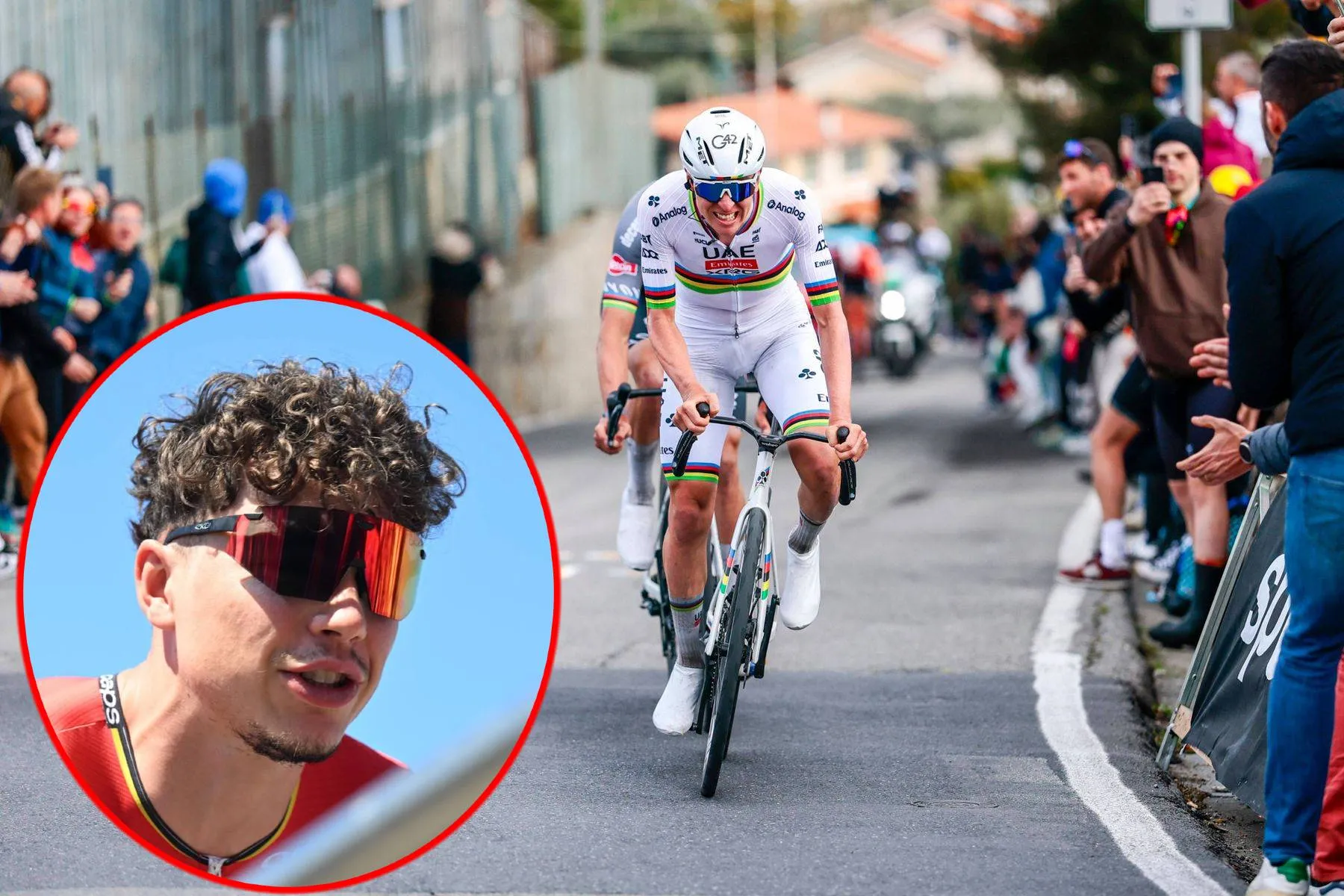Jay Vine: "Training on watts per kilogram is meaningless if you don't ride uphill"
CyclingFriday, 09 December 2022 at 12:48
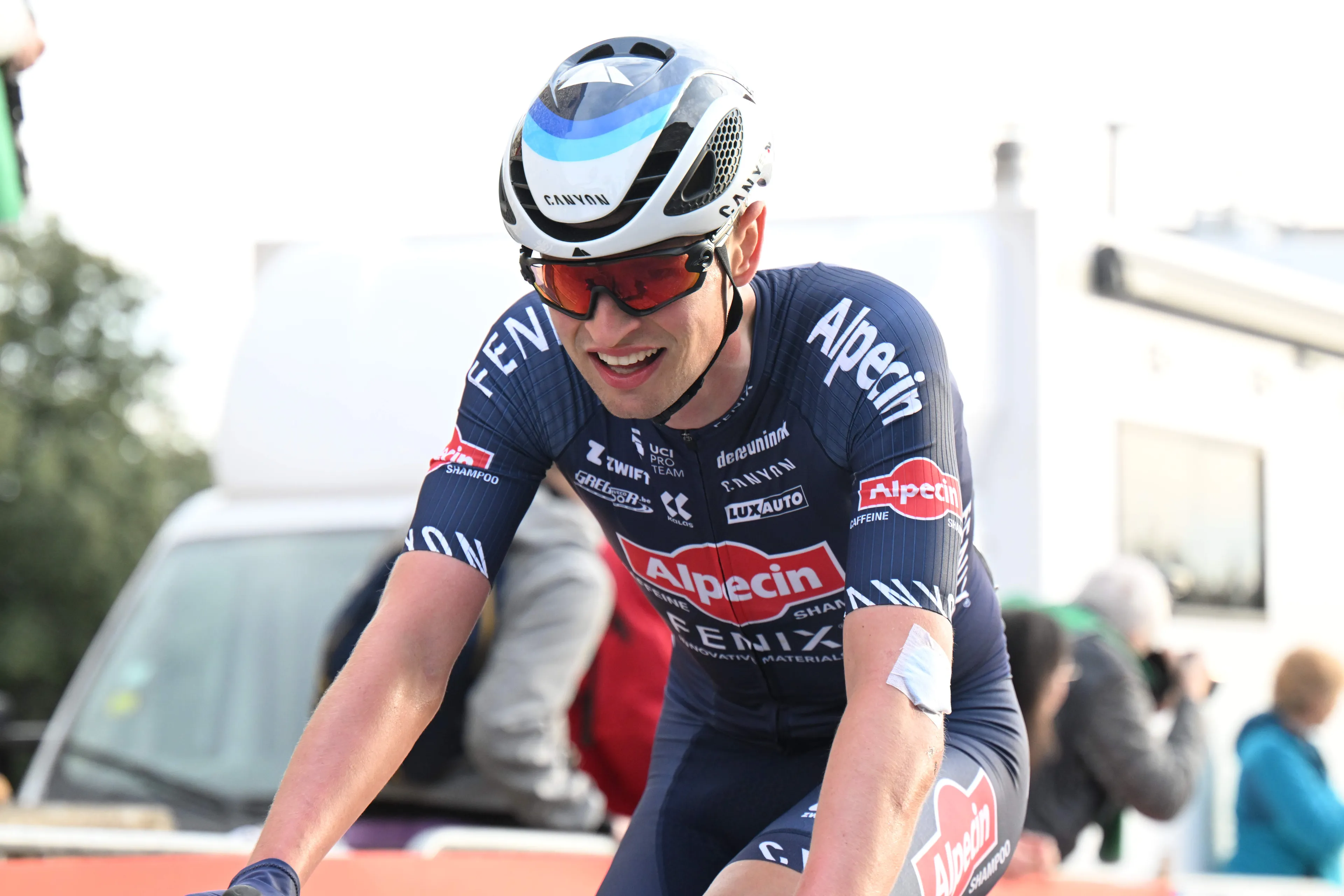
Jay Vine is likely the most prominent figure in the current peloton that has emerged through the ranks via e-racing, and in a recent interview he has exposed his opinions on the topic and how the talent seen in online racing can translate to the pro peloton.
“My wife was the breadwinner during that period, because I was chasing my cycling dream," Vine said in an interview with RIDE Magazine. "We could not sustain this construction for much longer. But I was convinced that I was one of the best climbers in the Australian national circuit.” Vine turned pro in 2020 but was in a small Australian team without much reputation to his name.
Read also
All that changed at the end of the year as he won the Zwift Academy competition, which has earned him a position in the Pro Continental outfit of Alpecin-Deceuninck where he would suddenly become teammate of riders such as Mathieu van der Poel, Jasper Philipsen and Tim Merlier.
“If I focused entirely on the Zwift Academy, I had a good chance of enforcing a selection for the final. For three months I rode myself completely to the beasts to be good. I think I was the fittest, lightest and most focused Zwift participant," he described. The effort paid off, and with his talent broadcast to the world, he had found the necessary exposure to show off his climbing talent.
Read also
“Sometimes Zwift looks a bit like real racing, also thanks to the use of drafts, for example. It's not rocket science either. You look at the side of your screen: if there are red numbers there, you know you're going to have a hard time," he continued. "If they are not there, then it is somewhat easier. Just like in a road race you can't ride all the time from the front, because then you won't win. Still, you can't really compare Zwift with the real situation. Training on watts per kilogram is meaningless if you don't ride uphill.”
Vine showed talent in 2021 at races such as the Tour of Turkey, Vuelta a Burgos and Vuelta a Espana where it was apparent he had the legs to perform well, but was visibly lacking the consistency. This continued to be the case in early 2022 with standout performances at Etoile de Bessèges and Volta ao Algarve. Second places at the Tour of Turkey and Tour of Norway - behind Remco Evenepoel - showed he was on the right track, but his breakthrough at the Vuelta a Espana was above all expectations.
Read also
“Now don't think that this is some kind of new road to the pros. That may be possible, but not without racing experience. You have to master technique," he said. He won the opening two mountaintop stages, the second from a breakaway, but the first directly beating the likes of Remco Evenepoel, Enric Mas and Primoz Roglic who battled for the red jersey throughout three weeks. He was set to win the KOM classification in fact, but his race was cut short with a crash in the final week.
“You will certainly find athletes with big engines via Zwift. But you need more than that. And Zwift does not allow you to find Tim Declercqs," Vine argued. Whilst in climbing the format of e-racing will often reveal strong talents, the Australian is keen to point out that other types of riders - such as classics specialists, sprinters and many who could be considered domestiques - are not easily found the same way.
Read also
"You don't find types like him specifically via watts per kilogram and eRacing. If I look at myself: with Zwift alone I would not have been a professional – or not for long," he concluded.
Read also
claps 0visitors 0
Just in
Popular news
Latest comments
- Of all the riders, I can’t think of anyone less likely to accept a room with a malfunctioning Air Con. He would be straight on to the team and the hotel would undoubtedly have pulled out all the stops to get it working. I wonder if the hotel has read his comments about their Air Con?GregT21-02-2026
- Yes, it was his best year but the level of riders he’s up against from now on is higher too.Mistermaumau21-02-2026
- UAE doping...I'm shocked.
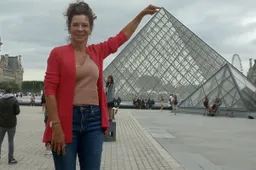 parisbound0020-02-2026
parisbound0020-02-2026 - Total scandal how long this is taking and the resistance to it. I said something like this could happen and very luckily it was more a scare than ANOTHER tragedy. Not sure it will change many people’s minds but I will be blaming them if tragedy does happen. FFS there’s ZERO disadvantage to carrying one of these, especially if its weight gets incorporated into the minimum allowed. NOBODY questions the wearing of helmets anymore and few remember the pointless resistance to that.Mistermaumau20-02-2026
- Time will tell. He did have his best year by far last year, so I am a bit reluctant to call him yesterday's man quite yet.mobk20-02-2026
- complete joke with the lead motorcycles on this TT, Jaun had the best driver for first 2 minutes maybe more at 10 bike lengths ahead.jad2920-02-2026
- Another unbelievable excuse came during the Giro dell'Emilia'24. He claimed something got in his eye, then he couldn't finish. My friend from Bologna was in the crowd and told me he was crying with frustration (Pogacar dropped him on the climb to San Luca). Remco's problem is that he refuses to be "just" a great champion; he wants to be Mertz or more than Mertz
 maria2024202420-02-2026
maria2024202420-02-2026 - I’m afraid Almeida’s time has come, and gone. He’s had chances to win more but with the strength of the new crop of youngsters, there’ll be little left for him to pick up. He’s just a slightly more aggressive Sepp Kuss, born to assist.Mistermaumau20-02-2026
- Just as circumstantial as market manipulation by the too big to shut ups these days. There’s are only very limited resources to follow up everything and so more and more people realise the risk isn’t that highMistermaumau20-02-2026
- Mediocre TT for Almeida relative to his usual. Seixas definitely proving he is the real deal here.mobk20-02-2026
Loading
Write a comment
